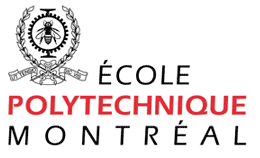Prof Bruno Blais
No more applications being accepted
Funded PhD Project (Students Worldwide)
About the Project
Keywords: Computational Fluid Dynamics (CFD), Electromagnetic Waves, Multiphase flows, Finite Element Modeling, Polystyrene, Pyrolysis,
Electrification of chemical processes is part of the energy transition that aims at reducing the carbon footprint of various industries in Canada.. Over the last 10 years, breakthrough advances have been made towards the deployment of microwave technology at industrial level by the Canadian technology company Pyrowave. They have developed a catalytic microwave depolymerization reactor which can effectively pyrolyze polystyrene to produce styrene monomers which can be used to synthetize virgin-grade polystyrene. Considering that only 30% of Canadian communities have access to polystyrene recycling facilities and that the Pyrowave process can work efficiently with contaminated polystyrene, this cost-effective and high-yield technology would tremendously reduce the amount of plastic waste generated in the world.
Pyrowave currently faces challenges in the optimization of their reactor. A number of these issues are related to the impact of the microwaves, which generate local high-temperature sites which are beneficial to the pyrolysis, but which must be controlled to ensure adequate yield and structural integrity of the reactor. This requires in-depth understanding of the multiphase flows within the reactor when it is subject to microwave radiation. The proposed project will be carried out by a team of two PhD students and combines multiphase computational fluid dynamics (PhD A) and state of the art experimental work using radioactive particle tracking (PhD B) to understand, quantify and predict the influence of microwave radiation on the solid-fluid flow patterns and heat transfer within the reactor.
The candidate will be responsible for the development, verification and validation of a Computational Fluid Dynamics model of the solid fluid reactor, which will include the heat transfer, microwave propagation, reaction kinetics and the evolving viscosity of the fluid. Once validated, this model will give insight on optimal operating parameters as well as on the optimal geometry of the reactor. The candidate will build upon previous models developed by the group of Prof. Blais. The inclusion of heat transfer, reaction kinetic, microwave field and non-Newtonian fluid all pose challenges of varying difficulty which will be tackled individually before being combined into a complete multiphysics model which will be the first of its kind.
The candidate should be interested in numerical modeling. Previous knowledge of C++ programming, the Linux operating system and on finite element modeling are beneficial to the candidacy.
We believe that the outcomes of this project will enable the design of new catalytic microwave depolymerization reactors which will be a key contributor to the circular economy of tomorrow.
Funding Notes
The funding will follow the norms of the Department of Chemical Engineering of Polytechnique Montreal.
Funding is guaranteed for 4 years.

 Continue with Facebook
Continue with Facebook

